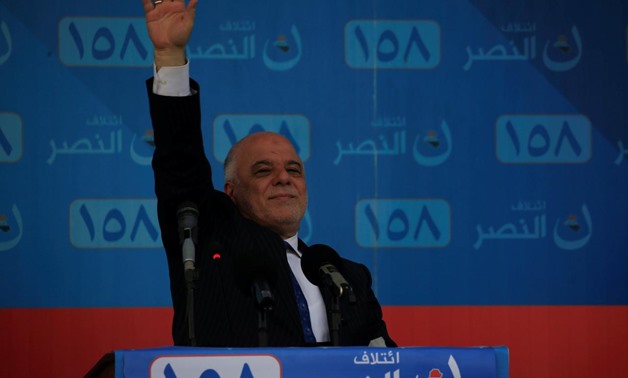
Iraqi Prime Minister Haidar al-Abadi greets his supporters during an election campaign rally in Najaf, Iraq May 3, 2018 - REUTERS/Alaa al-Marjani
SULAIMANIYA – 2 October 2018: Iraq's parliament postponed a vote on Monday to name a president because the main Kurdish parties, who were supposed to present a candidate, could not overcome differences, said several lawmakers.
Iraq's presidency, traditionally occupied by a Kurd, is largely a ceremonial position but the vote is a key step towards the formation of a new government, which politicians have failed to do since an inconclusive national election in May.
Parliament speaker Mohammed al-Halbousi said the vote would by delayed until Tuesday due to a lack of quorum.
Under Iraq's constitution, the new president would have 15 days to task the largest parliamentary bloc's nominee with forming a government. The prime minister-designate would have 30 days to form a cabinet and present it to parliament for approval.
Lawmakers said the dominant Kurdish parties -- the Kurdistan Democratic Party (KDP) and the Patriotic Union of Kurdistan (PUK) -- were unable to iron out differences and agree on a candidate.
The two sides competed in a parliamentary election in their semi-autonomous region in northern Iraq on Sunday. Allegations of fraud have created tensions. Results have not been announced.
Lawmakers from the parties suggested neither side was showing flexibility.
Rebwar Taha, a PUK member of the parliament in Baghdad, said the party insists on its candidate, veteran politician Barham Salih. "Delaying the session until Tuesday will not change our decision," he said.
KDP lawmaker Sherwan al-Dobardani said his party was entitled to the position because it has more seats in the national parliament.
Since Saddam Hussein was toppled in a 2003 U.S.-led invasion, power has been shared among Iraq’s three largest ethnic-sectarian components. The prime minister has traditionally been a Shi’ite Arab, the speaker of parliament a Sunni Arab and the president a Kurd.

Comments
Leave a Comment